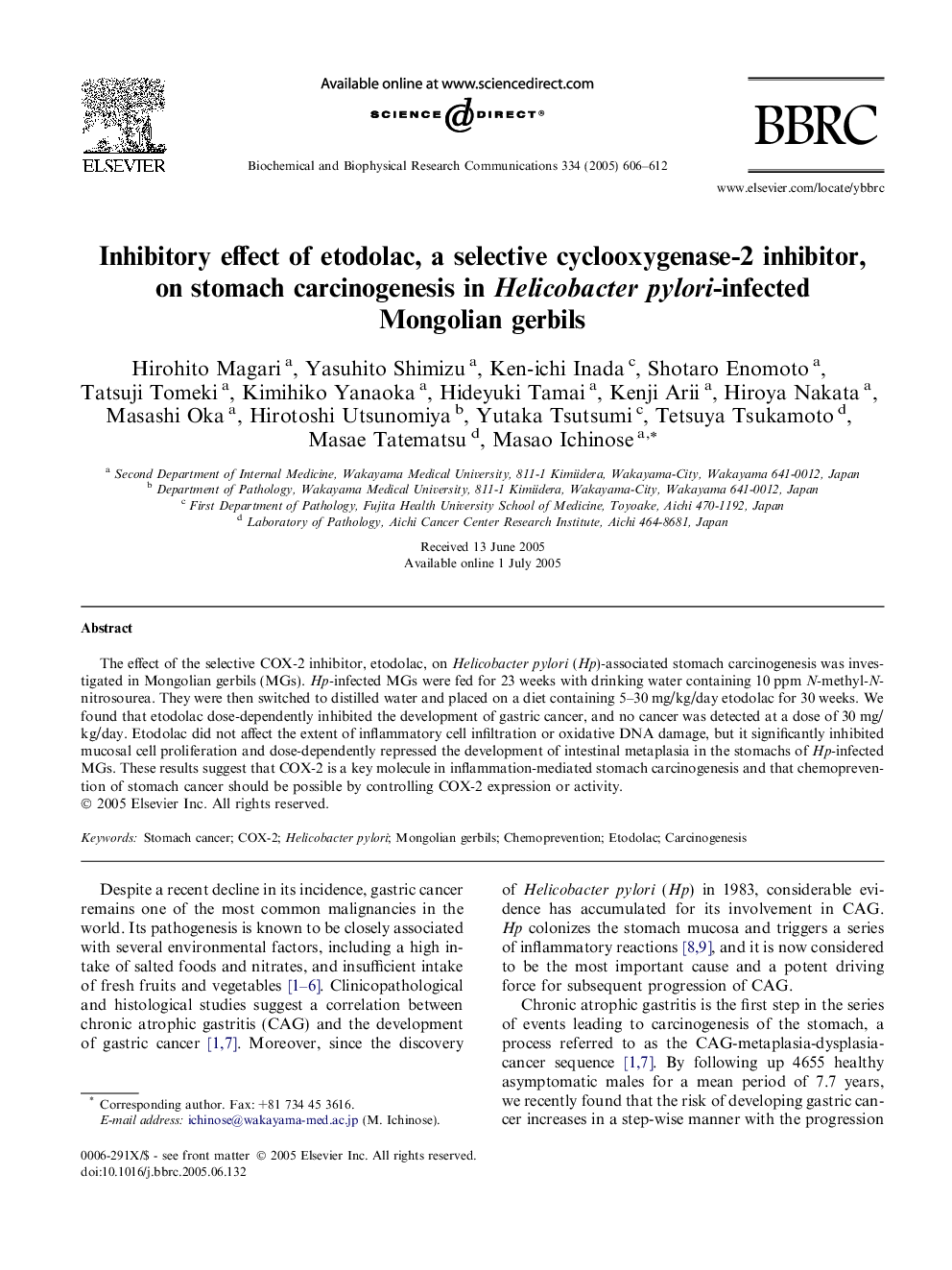| Article ID | Journal | Published Year | Pages | File Type |
|---|---|---|---|---|
| 10769244 | Biochemical and Biophysical Research Communications | 2005 | 7 Pages |
Abstract
The effect of the selective COX-2 inhibitor, etodolac, on Helicobacter pylori (Hp)-associated stomach carcinogenesis was investigated in Mongolian gerbils (MGs). Hp-infected MGs were fed for 23 weeks with drinking water containing 10Â ppm N-methyl-N-nitrosourea. They were then switched to distilled water and placed on a diet containing 5-30Â mg/kg/day etodolac for 30 weeks. We found that etodolac dose-dependently inhibited the development of gastric cancer, and no cancer was detected at a dose of 30Â mg/kg/day. Etodolac did not affect the extent of inflammatory cell infiltration or oxidative DNA damage, but it significantly inhibited mucosal cell proliferation and dose-dependently repressed the development of intestinal metaplasia in the stomachs of Hp-infected MGs. These results suggest that COX-2 is a key molecule in inflammation-mediated stomach carcinogenesis and that chemoprevention of stomach cancer should be possible by controlling COX-2 expression or activity.
Keywords
Related Topics
Life Sciences
Biochemistry, Genetics and Molecular Biology
Biochemistry
Authors
Hirohito Magari, Yasuhito Shimizu, Ken-ichi Inada, Shotaro Enomoto, Tatsuji Tomeki, Kimihiko Yanaoka, Hideyuki Tamai, Kenji Arii, Hiroya Nakata, Masashi Oka, Hirotoshi Utsunomiya, Yutaka Tsutsumi, Tetsuya Tsukamoto, Masae Tatematsu, Masao Ichinose,
